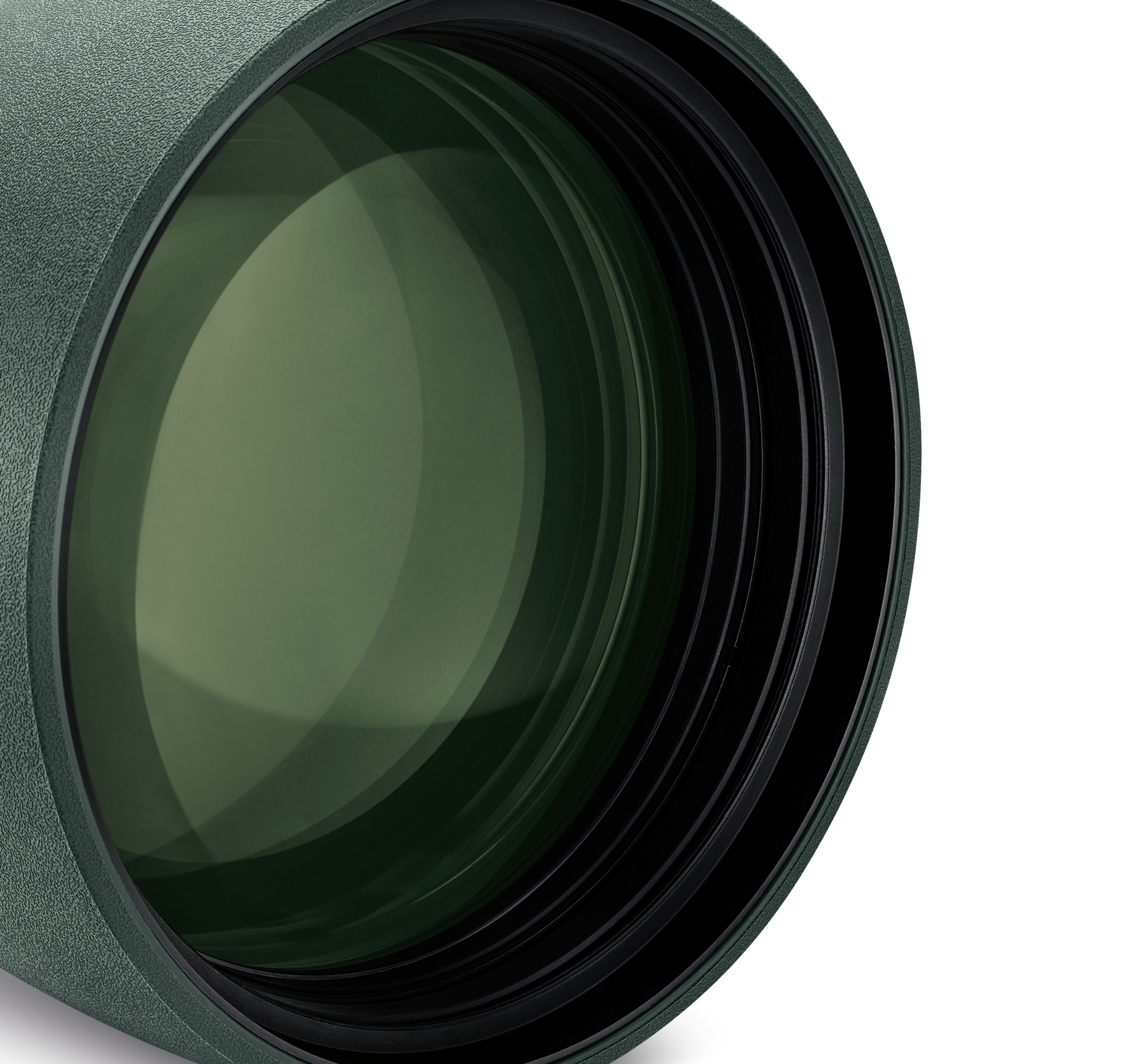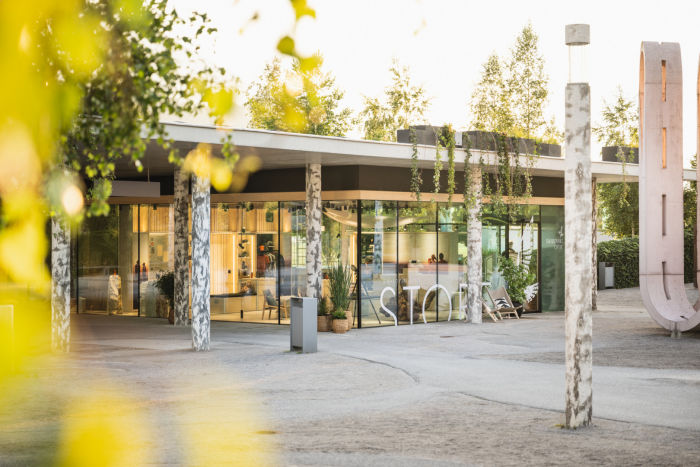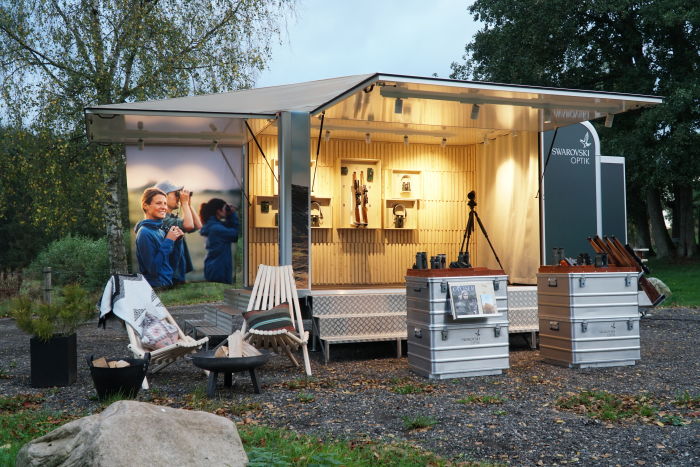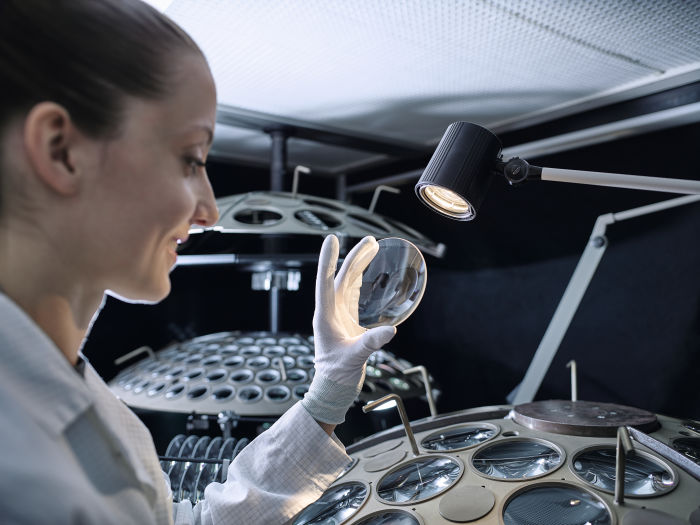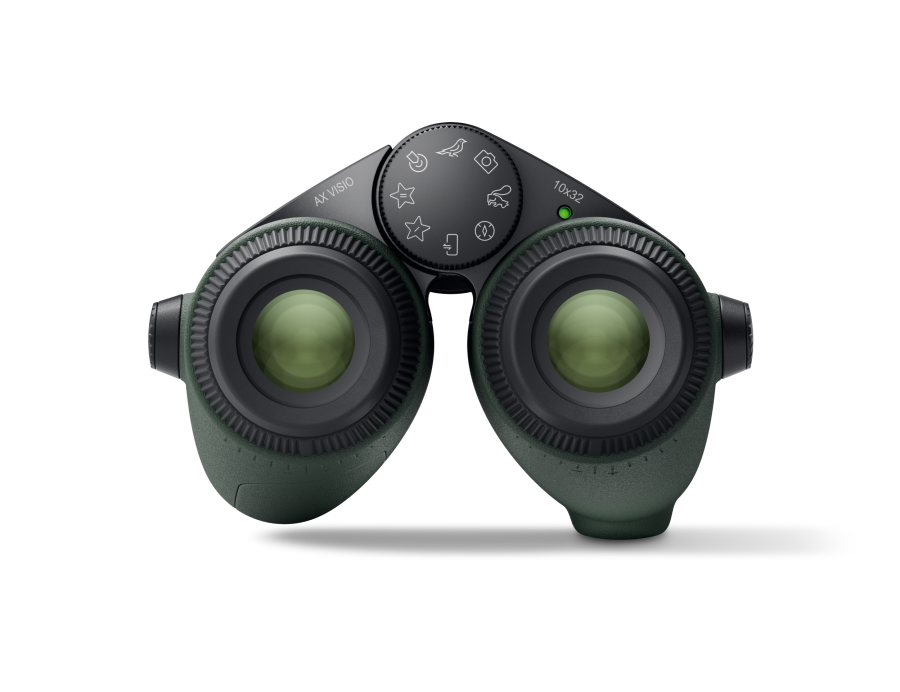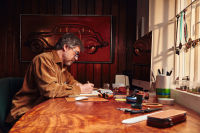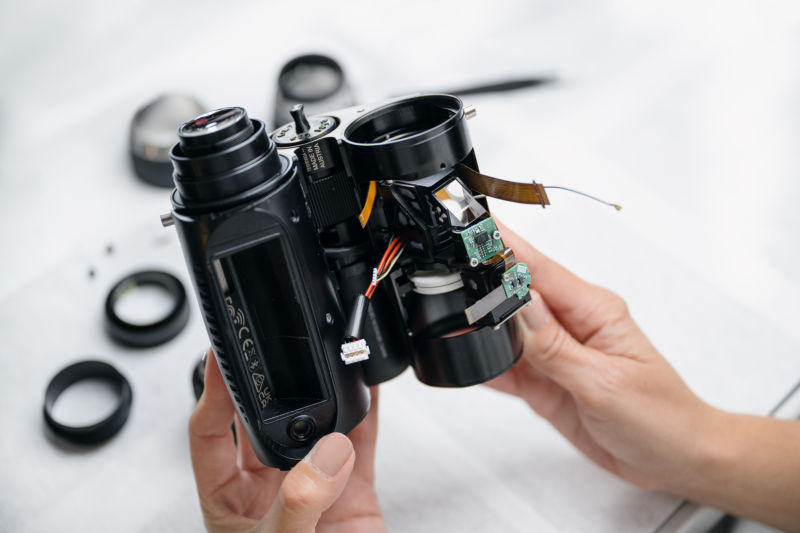Marc Newson, world-renowned and international award-winning industrial designer, created an unmistakable design for AX Visio binoculars in collaboration with SWAROVSKI OPTIK. Where did he get his inspiration from and what is he hoping to achieve with his design of the AX Visio? Find answers to these questions in this interview with the designer.
The AX Visio is the second product, which you designed for SWAROVSKI OPTIK. Why is this product special for you?
The AX Visio is a particularly special project for me because it is the first of its kind. It’s rare for a designer to work on something that is the first product within a category, which is naturally exciting and suffice to say, challenging. Binoculars are traditionally solely analogue objects, which, while compelling and ‘future proof’, are essentially bi-dimensional. The AX Visio belongs to a different typology, and one that is totally new in the combination of optics and technology. Similar to a modern camera, they are optical, electronic and digital!
Typically, how do you approach design projects? Was the approach different for this project?
The design process typically begins with the client identifying a problem or series of problems they’d like me to address, whether that is a whole product range or a specific item. The collaboration we began some years ago was two pronged: I was tasked to design a lightweight, pocket-sized binocular (the CL Curio) which launched a few years ago, and the AX Visio: a new product for the company and the first of its kind in the industry. The AX Visio was an order of magnitude more complex, in that it is a new product type and contains new technology, so in that sense the approach was quite different. I always enjoy the process of creating a ‘family’ of products, and while the CL Curio and AX Visio have different functionalities, they share a coherent design language and the same fundamental purpose.
What was your intention when you designed the AX Visio?
I sought to create a pair of binoculars that are intuitive, modern and crucially, comfortable in the hand and on the eye. Similar to CL Curio, the pocket-sized binocular that I also designed for Swarovski Optik, the AX Visio has an extruded aluminium bridge and shares the focusing wheel detail. It was also important to me to try to imbue the design with a kind of personality- I wanted them to feel approachable and usable. The inclination when designing high-performance items tends for them to be purposefully complex, and I was hoping to create something that was the opposite- intuitive and inviting.
Could you tell us, where your inspiration came from?
I took design cues from historic Swarovski Optik models like the Habich series, whose curious forms are defined by the porro prism arrangement. The form-follows-function design of these models is especially interesting in relation to binoculars, which in my opinion are one of the best examples of analogue engineering. The AX Visio has a geometry reminiscent of these vintage binoculars, but rather than housing the porro prism arrangement, the casing houses the technical elements required for augmented reality. I enjoy this play between the historical analogue binocular and the AX Visio: a cutting-edge product whose form is also dictated by the new technology it utilises.

In a pair of binoculars, all parts must harmonize perfectly. What was your greatest technical challenge when thinking about how each detail forms a whole?
The greatest technical challenge in the design process was the size of the binoculars: the optics and technology- which includes AR, Bluetooth, GPS and a camera- must all fit within a tiny, handheld package. Like the rest of Swarovski Optik’s offerings, the AX Visio is repairable and so the object must have the capability of being taken apart, a constraint which also informed the design.
The design language of the AX Visio is distinctive in the world of sport optics. What three words describe your design language in general?
Simplicity, functionality, and I’d like to think, completely unique. Ergonomics were also a primary consideration in the design of the AX Visio.
Is there a special feature of the design of the AX Visio, which you would describe unique? What inspired this detail?
The three-scope construction is an obvious visual departure from other binoculars, and this encompasses the solid hinge and bridge detail, joining the dots between the three lenses. This structure took a significant amount of time to rationalise- and manufacturing expertise to realise.
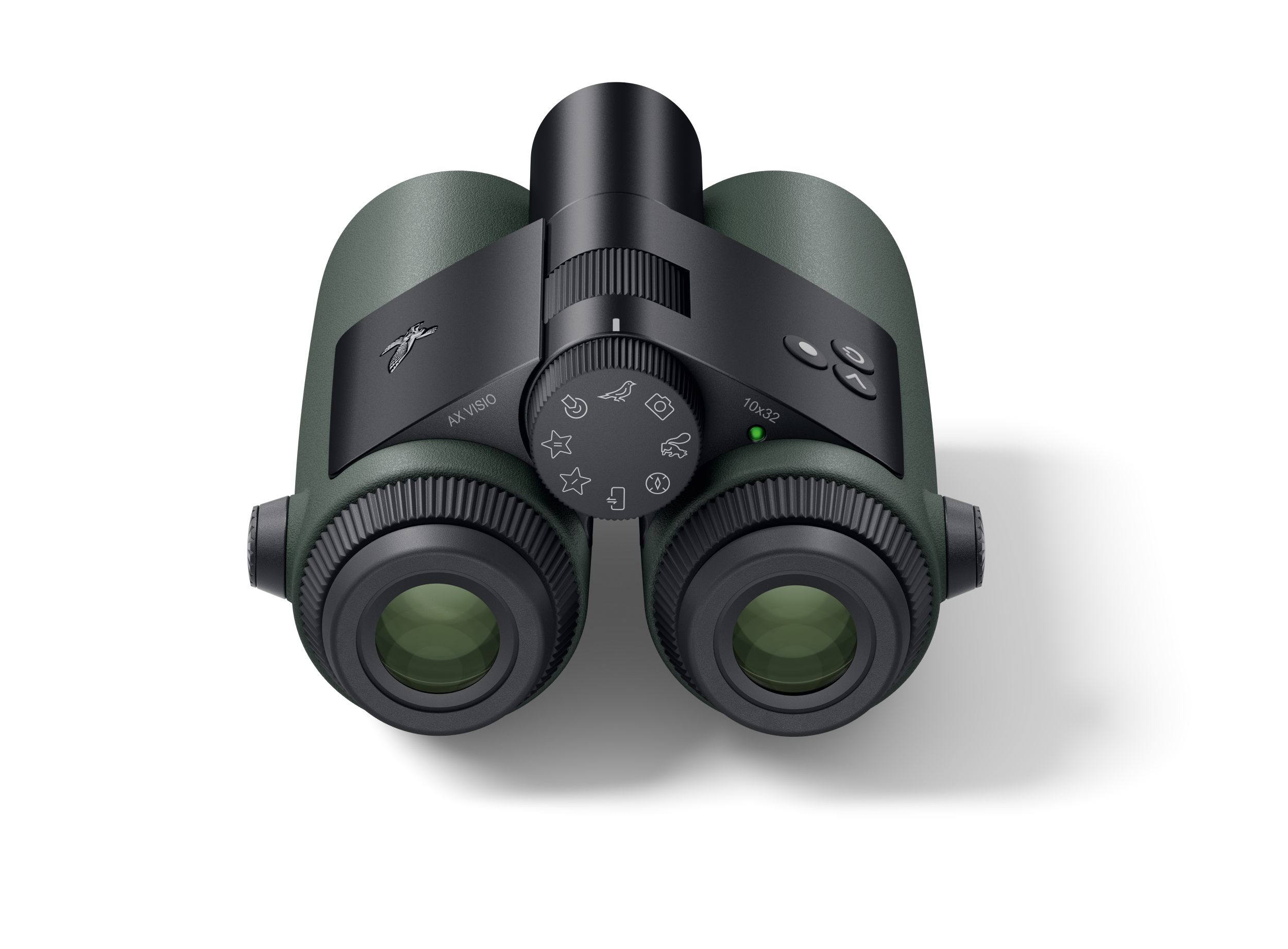
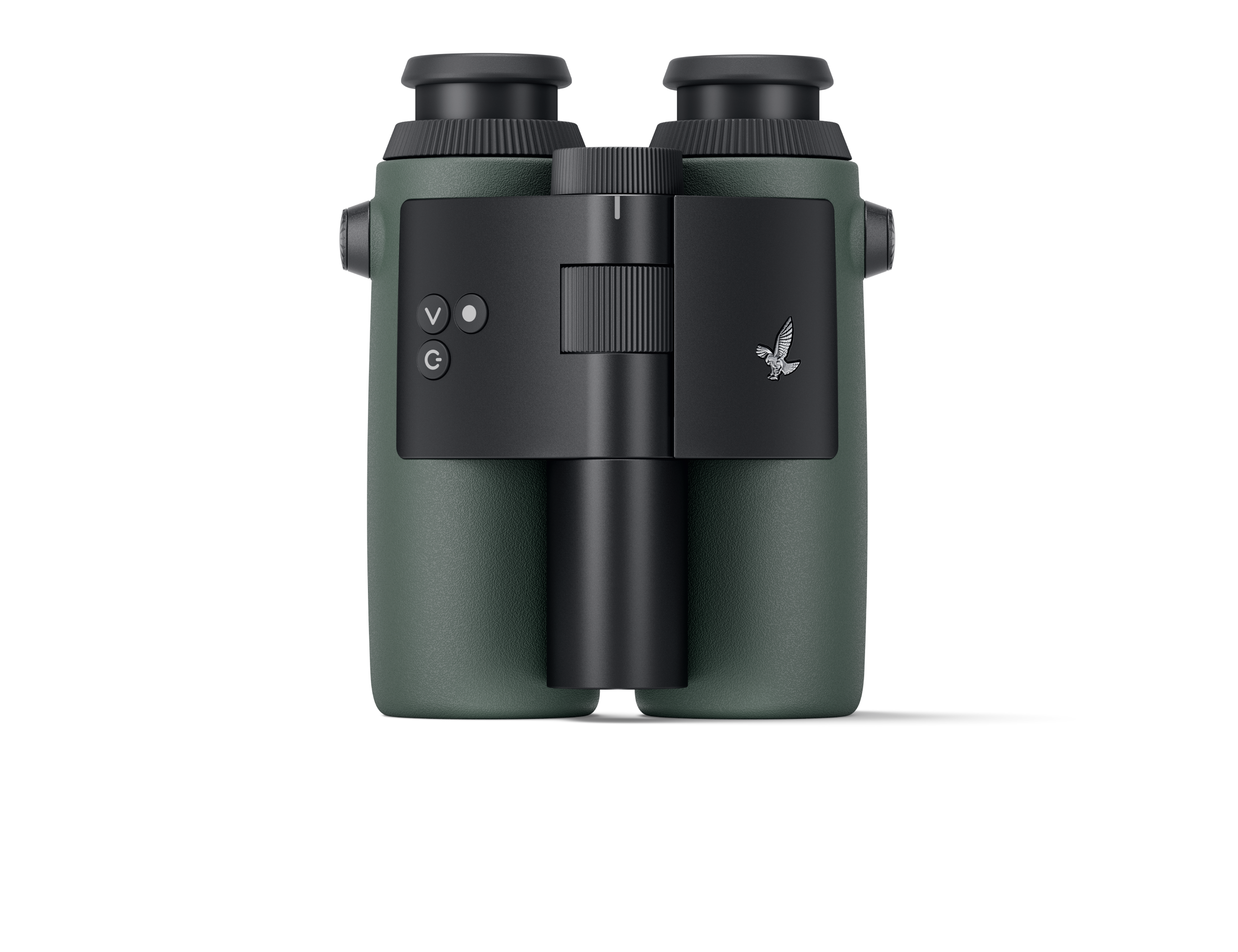
Can you explain the form-follows-function design more in details – what does this mean when developing a design for a product.
The AX Visio differs significantly from the other products within Swarovski Optik’s range both aesthetically and in terms of the technology involved. The technical requirements of the product inform the design, as is the case with almost all of my designs. Here, the parameters were very tight in terms of where I could eek out space to play with, and the optics and various complex technologies are all contained within this incredibly economical handheld object.

How do you feel about the combination of the analog binoculars with the AR technology?
I find binoculars generally to be awe inspiring, wonderful and fundamentally essential objects. The fact that they allow one to see things invisible to the naked eye is, in my opinion, akin to magic. The new technology in the AX Visio provides an educational and recording functionality to the product, whilst maintaining the analogue optics at the centre of the product. This fusion is extremely exciting to me.
Have you tested the product – how do you feel about using binoculars with AI when observing nature?
Crucially, the binoculars are all about learning and experiencing nature, and equally suitable for a relative novice like myself or a more experienced individual. The integrated display means that you don’t have to look away from what you’re observing to check a book or phone, and in the process potentially lose sight of the subject. The excitement of discovery and immediacy of recognition possible through the AX Visio technology is thrilling. And yes, I am obsessed with using them!
The AX VISIO is the second collaboration in which Marc Newson designed a pair of binoculars in collaboration with SWAROVSKI OPTIK. The CL Curio- the most compact pair of binoculars by SWAROVSKI OPTIK- was the first collaboration. Learn more about this fascinating first project:
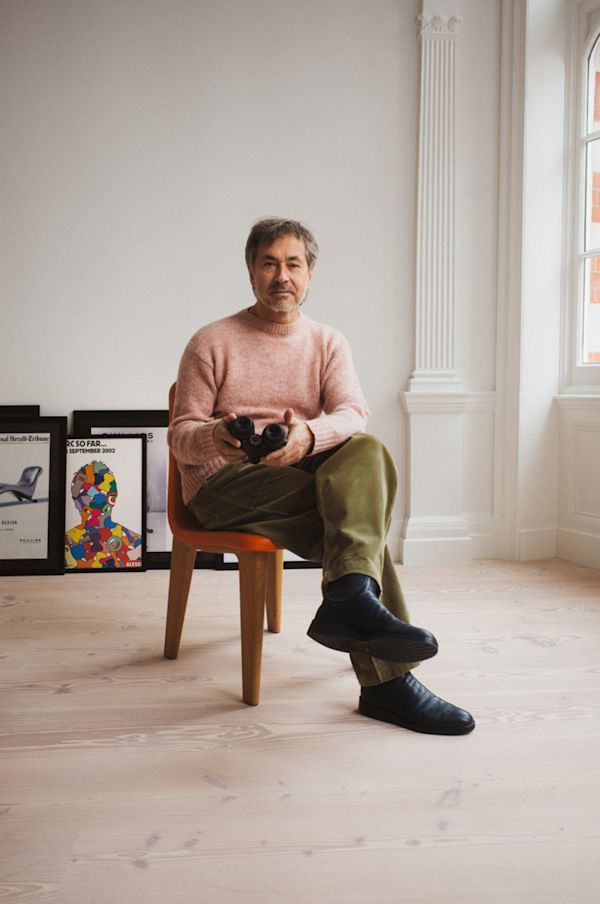
About
Marc Newson
Marc Newson has been described as one of the most influential designers of his generation.
Born in Sydney, Australia, he has lived and worked in Japan, France, and the United Kingdom, where he currently resides.
He has worked with brands such as Ferrari, Apple and Louis Vuitton and is responsible for some of the most iconic contemporary design pieces.
Marc Newson has received numerous awards and accolades, including a CBE by Her Majesty Queen Elizabeth II.





